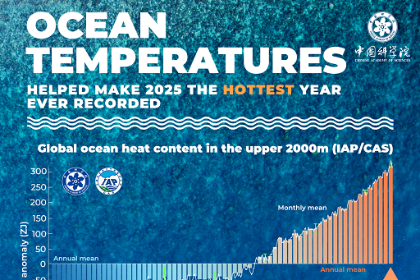Profile: With popular mandate, Xi Jinping spearheads new drive to modernize China


During one visit to a Beijing hutong, the capital's distinctive residential lanes, Xi rolled up his sleeves to make dumplings with one family, and the conversation flowed. Before he left, Xi confided that he draws strength from such interactions.
In spite of his busy schedule, Xi has consistently prioritized people's happiness as essential. On more than one occasion, he said, "Development should benefit all individuals more equitably and comprehensively, and continually promote the all-round development of people."
At the start of the year, Xi was unanimously voted in as a deputy to the 14th NPC through a competitive election in Jiangsu. He was just one of over 2,900 deputies elected nationwide, representing the country's dynamic socio-economic diversity, from workers to farmers, technical professionals to migrant workers.
On March 5, Xi joined his fellow deputies from the Jiangsu Province delegation at the NPC session to deliberate the government work report and discuss state affairs.
The Jiangsu deliberation was not the only meeting Xi attended at this year's "two sessions," nor was it the only time he has interacted with lawmakers and political advisors.
From 2013 to 2022, Xi attended 53 deliberations and discussion sessions, speaking directly to about 400 lawmakers and political advisors. From asking about the marriage rate of an underprivileged central Chinese village to pressing for details of the winter tourism industry in the northeastern province of Jilin, his questions are always poignant and relevant.
People familiar with Chinese politics view such interactions as a manifestation of Chinese democracy. Accordingly, it is no surprise that Xi has gained a reputation for supporting public empowerment in their own affairs and encouraging their participation in political affairs.
"China is a big country. It is only natural for different people to have different concerns or views on the same issue. What matters is that we reach consensus through communication and consultation," Xi said in his New Year Address 2023.
In June 2022, China completed the election for the county and township-level people's congresses. The election involved 1.064 billion voters. It was one of the world's largest grassroots democratic elections.
The people's congress is the backbone of China's political system, and NPC deputies are responsible for a wide range of duties, including formulating laws, supervising the government and judicial organs, and electing national leaders.
Each of the country's 55 ethnic minorities is represented in the national legislature. Dong Caiyun is a member of the Bao'an ethnic group, which has a population of only about 20,000.
At the "two sessions" in 2019, she proposed a new expressway that would boost the development of her county in Gansu Province, northwest China. Other deputies lauded her proposal, and Xi, who was present at the meeting, responded by asking the relevant departments to study the proposal.
After rounds of research and feasibility studies, construction began. It is due for completion this year.
"This road represents the aspirations of the people in my hometown for a modern life," said Dong.
Quan Taiqi, who works at a bus station in Lianyungang, Jiangsu, has just completed her second term as a deputy to the national legislature. She voted for Xi to be the Chinese president five years ago.
"I endorsed him [as president] because I believe he is a trustworthy leader who truly cares for the people," she said.
She recalled that Xi was present during a deliberation years ago when she raised an issue about ticket-free child passengers on buses, who might cause over-sale of tickets. Xi immediately spoke up, taking Quan by surprise, as she thought the topic was too specific and menial for a state leader. Xi not only spoke up, but also asked about the practice on trains for reference. After the meeting, a review of the issue quickly began, culminating in a practical plan.
"When Xi spoke to us grassroots deputies, he was not condescending. He quizzed us, 'Is it like this?' 'Is this good or not?'" Quan recalled.
During the "two sessions" in 2021, Quan met Xi again. She went up to him and brought up their previous interaction. However, the corridor was crowded, but as he left, Xi said, "Let's talk about it later." Quan thought that would be the end of their conversation, but around 11 pm that night, she received a call from Xi's team, asking if she had any suggestions or problems to raise.
Xi believes that democracy is a requirement for modern countries, but it must be in line with national conditions, and Chinese democracy should by no means be the same as Western-style democracy. He describes Chinese democracy as a "whole-process people's democracy," which covers all aspects of the democratic process and all sectors of society.
"The purpose of democracy is to address the issues that require resolution by the people," he said.























